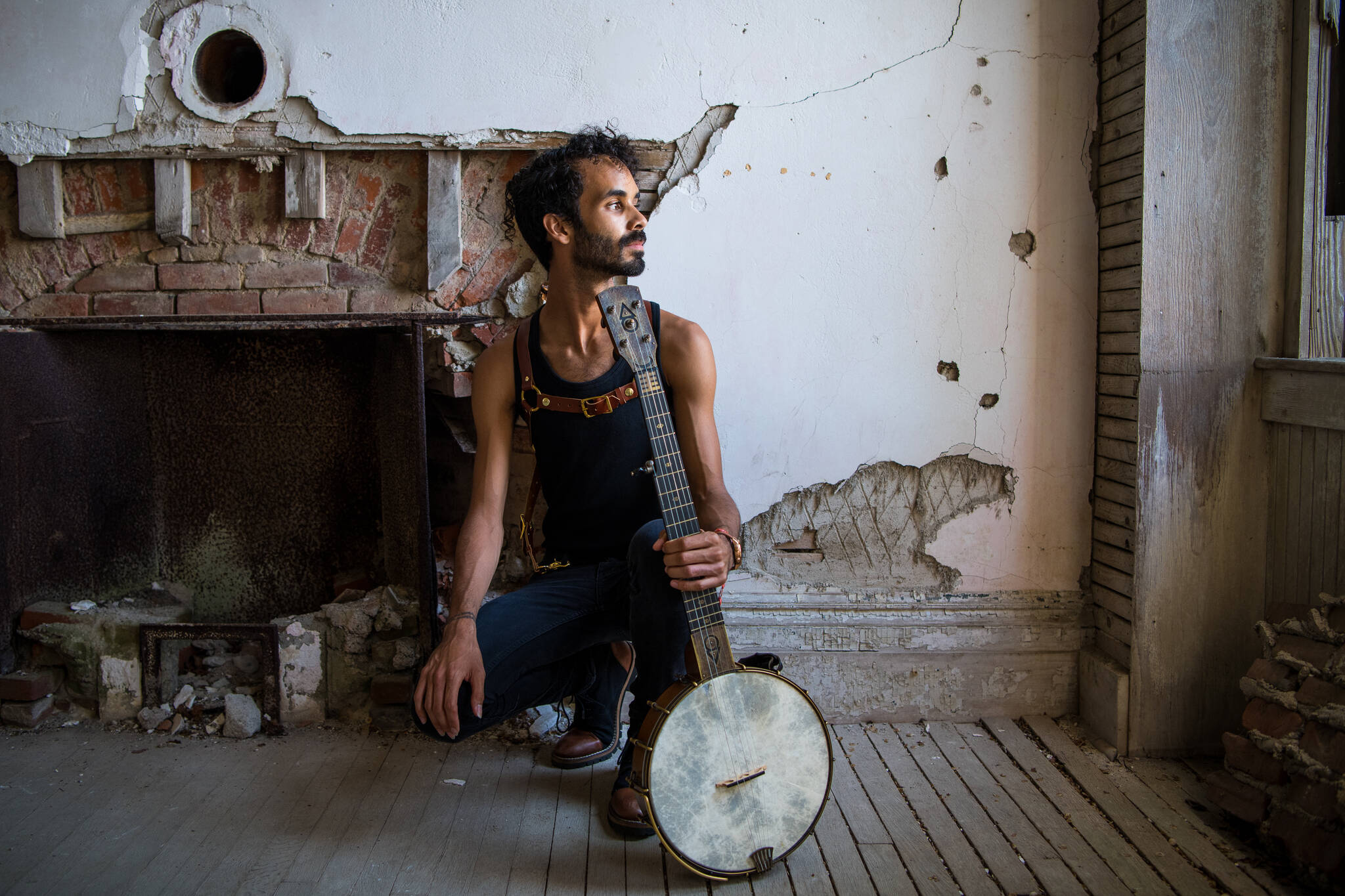With a sound from the humid tidewater regions of the Eastern Seaboard and a list of accolades long enough to paper a house, Jake Blount is an auspicious pick for the Alaska Folk Festival’s featured artist.
Each year, the Alaska Folk Festival selects one artist to be the featured artist for the event, a single group or artist selected on strong recommendations, as well as a series of criteria such as “willing to come to Alaska” and “be alive and not dead.”
Blount, a banjoist, fiddler and singer with a background in ethnomusicology, is based out of Rhode Island.
Coming from the East Coast, Blount grew up in Washington, with roots in the Tidewater region around the Chesapeake Bay, Blount began playing the banjo after a chance encounter in a Washington restaurant with Megan Jean and the KFB on his way to a dubstep concert. Blount bases his brand music in the styles of the Black and Indigenous communities of the southeast U.S. that he comes from.
Blount has two albums out, 2017’s “Reparations” and 2020’s “Spider Tales”, in addition to a number of singles and projects with other artists. Blount is scheduled to play at 8 p.m. on Thursday evening and 8:45 p.m. Sunday evening alongside George Jackson, Mali Obomsawin and Gus Tritsch.
The Empire sat down (telephonically) to chat with Blount ahead of his visit to Alaska.
The conversation has been edited for length and clarity.
Ever been to Alaska before?
I have not. This is going to be my first time. I grew up on the East Coast of the U.S. It’s not spectacular topographically.
How long did it take the Folk Festival spot to come together?
It took until this year to happen, but I’m glad it’s happening. Is it practical? Not necessarily. But we didn’t become musicians because it’s practical.
How long have you been playing?
I’ve been playing music since I was 12.
And why the banjo?
The banjo is descended from African instruments and developed by enslaved people in the U.S. It was developed in the Chesapeake Bay region. Knowing that history of it, knowing that it’s such a big part of our family’s history.
How did you get into a place where you were making music full time?
I graduated from school and I kind of expected to fall into an academic path. I wound up getting enough gigs that I couldn’t hold down a normal job between gigs. I got lucky to have something like that fall into my lap that most people have to fight for.
What are some of the inspirations for your work?
Over the past several years, I’ve felt pretty drawn to some of the religious music that comes out of the community. A lot of the time, what I feel drawn to in songs is the old hymnals.
How does that process go?
A lot of what I do is not just sharing music but sharing the stories around the music. A lot of time, I spend researching the music. String band music is something that’s not widely spread about. I have to go into some specific places. There’s a lot of levels of cultural analysis I need to do to present it respectfully.
And what have you been up to lately?
I just finished a month-long stint (touring) and I’m about to start another. It’s about getting things going again. I have a lot of downtime to make up for.
• Contact reporter Michael S. Lockett at 757-621-1197 or mlockett@juneauempire.com.

